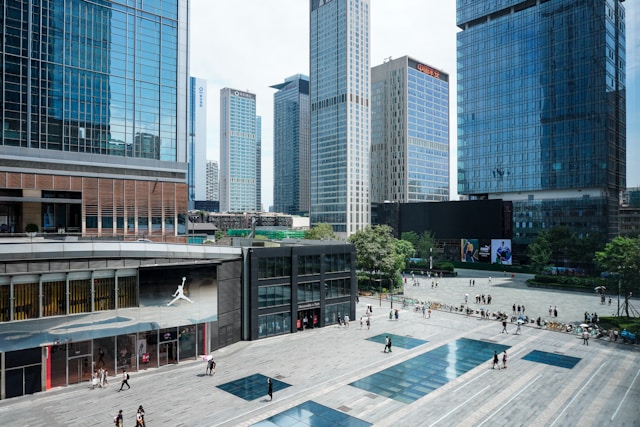
Reading Notes of People's Court Daily is a series of articles written by Dr. Liu Qiang (劉強) to introduce what he learns from People's Court Daily and to share his own comments. Dr. Liu Qiang is currently a postdoctoral fellow at China Institute of Applied Jurisprudence(應用法學研究所) under China’s Supreme People’s Court (SPC).
People's Court Daily is a daily newspaper managed and issued by the SPC. It mainly publishes articles written by judges from various courts across China and its readers are mainly Chinese judges and the public community who want to know about Chinese courts.
The protection of the personal rights of Chinese judges is one of the most concerned issues for them. From an investigation report made by Longyan Intermediate People's Court of Fujian Province, we can learn that the personal rights of Chinese judges are often violated. Now, the SPC is working hard to solve this problem.
"Recent years have witnessed frequent occurrence of violation against the rights and interests of judges." Huang Ermei (黃爾梅), vice president of the China Judges Association(中國法官協會) and former vice president of the SPC, said at the National Forum on the Protection of Rights and Interests of Judges (全國法院法官權益保障工作座談會)held on 20 December 2017.
Huang believes that to help judges perform a better duty, courts should make research on improving the status quo where judges bear excessive workload, and suffer psychological pressure and safety pressure.
On 30 August 2018, People's Court Daily reported an article entitled "Strengthening Career Protection and Paying Attention to Physical and Mental Protection" (《加強職業保障 注重身心保護》). This article is a survey report on the protection of judges’ rights and interests, which was conducted by Longyan Intermediate People's Court. This court is located in Longyan, Fujian Province in eastern China. Situations described in this survey report may also happen to other courts in China.
According to the article, Longyan Intermediate People’s Court set up a research team to interview 40 judges at this court and 120 judges at 7 primary people’s courts within its jurisdiction, and finally formed a survey report.
1. Violations of judges' rights and interests
(1) Personal safety
Since 2016, there have been 10 insulting incidents, 17 incidents of defamation, 9 incidents of false accusation, 78 incidents of threatening and intimidation, 11 incidents of stalking judges and 268 incidents of harassing judges and their families via phone calls and text messages.
46.49% judges at these courts have been reviled and pestered by litigants; since 2018, three cases have happened where litigants tried to enter courts with scissors and daggers.
(2) Physical health
Chinese courts are now facing the challenge of litigation explosion, and courts at Longyan are no exception. The explosive growth of litigations has put an extra burden on the judges, which worsens their health conditions.
Since 2016, according to the statistics of sick leaves in these courts, the number of judges who have taken a sick leave for a specific disease and its proportion are as follows: 23 people take sick leave for cervical spine problems, accounting for 3%; 65 people for lumbar disc herniation, accounting for 8.4%; 8 for diabetes, accounting for 1.03%; 2 for heart disease, accounting for 0.26%; and 632 have suffered insomnia due to work stress, accounting for 82%.
(3) Mental health
Some judges are under huge psychological pressure and have no access to effective treatment.
Their psychological pressure mainly comes from three aspects: First, the SPC has exposed judges to more liabilities and higher risks of disciplinary punishment in the latest round of judicial reform. Second, the litigation explosion has increased judges’ work; Third, judges and their families are harmed or threatened by litigants and other personnel, or they hear of such experiences of their peers in other courts in China.
2. Reasons why these violations occur
(1) Failure to take reasonable precautions
Among the judges surveyed, 120 judges said that they would choose to keep silent in most cases when their rights are violated.
(2) Insufficient security measures at courts
Among them, 60 judges believe that security at detached tribunals is weak and security measures are poor. Almost none of the 17 detached tribunals in the city’s primary people’s courts have judicial policies dedicated to security.
(3) Imperfect relief measures for judges’ rights and interests
Forty of these judges hold that the current relief and the protective measures for the rights and interests of judges, like penalties, have not been effectively put into action and thus offenders infringe judges’ rights without getting punishment, deterrence or warning that they deserve. This lead to the repeated violation of judges’ personal rights.
3. Feasible solutions proposed by the research team
(1) Strengthen security measures
On the one hand, the Chinese judicial system should strengthen the punishment of any infringement of judges’ rights. On the other hand, each court should ensure adequate security arrangement and conduct strict security checks.
(2) Improve mental health
On the one hand, mental health education should be included as part of the continuing professional development of judges. On the other hand, the Judges Association and the Judges' Rights Protection Committee (法官權益保障委員會) should provide assistance to judges in improving their mental health.
(3) Manage stress
Judges should learn to deal with stress. For example, judges can relax by adopting a healthy lifestyle and a healthy diet.
If you would like to discuss with us about the post, or share your views and suggestions, please contact Ms. Meng Yu (meng.yu@chinajusticeobserver.com ).
If you wish to receive news and gain deep insights on Chinese judicial system, please feel free to subscribe to our newsletters (subscribe.chinajusticeobserver.com ).
Contributors: Liu Qiang 劉強









